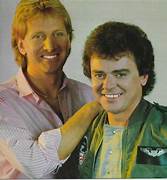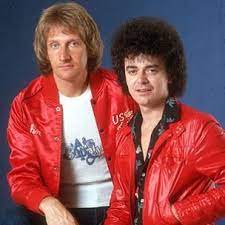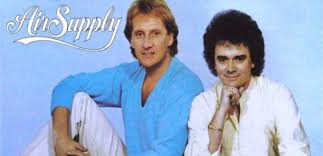
All Out Of Love (G Russell/C Davis) and Every Woman in the World (D Bugatti/F Musker) – Air Supply 1980
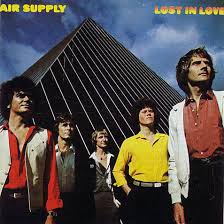
With the release of the album Lost in Love, Air Supply led the early part of the ’80s with a successful run of soft pop love songs of the sweetest variety, following on from the soft rock hits of the 70’s by Bread, England Dan and John Ford Coley, The Carpenters, Seals and Crofts, and others. Graham Russell’s compositions were unfailingly sweet, poetic, romantic, and accompanied by the fragile plucking of an acoustic guitar or soft tinkling of a piano, it was their formula for consistent success throughout the 1980’s.Below- Seals and Crofts, Bread, The Carpenters.
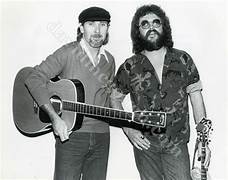
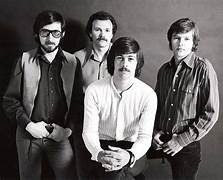
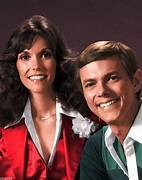
Graham Russell and Russell Hitchcock were the creative focus of what was a shifting ensemble of musicians who as Air Supply became one of the most successful chart acts of the 80’s – their backing band included Rex Goh (rhythm guitar), Frank Esler-Smith (keyboards), Ralph Cooper (drums), David Moyse (guitar), and David Green (bass) – and they worked closely with Australian producer Robie Porter (aka Rob EG) at this time, although he would be replaced by Michael Masser and Harry Maslin on future albums. Below – Air Supply L-R Frank Esler-Smith, Ralph Cooper, Graham Russell, David Green, Russell Hitchcock, and Rex Goh
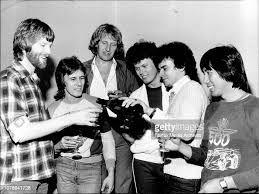
Lost In Love was a huge hit for the band in the US and the title track had climbed into the top five there, the follow up, All Out of Love, was a great pop ballad which attributed co-composing rights to Clive Davis, multi-Grammy award-winning chief of Sony/Arista Music. All Out of Love was pre-released prior to the album Lost in Love in March 1980, and was considered to be the duo’s signature song, Clive Davis of Arista worked closely with Air Supply and was instrumental in curating their music for success in the States. Below L-R Graham Russell, AS, Russell Hitchcock.
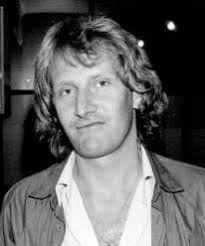
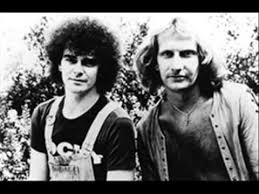
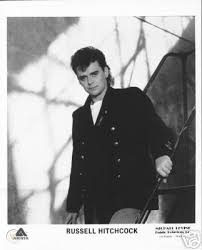
In Australia the band’s soft rock sound, tight harmonies and clean image had often been ignored and occasionally derided, despite the success of the band’s records internationally, gutsy boogie rock also known as pub rock, reigned supreme in Australia throughput the 80’s. All Out Of Love was truly an international hit charting #2 in the USA where it was blocked from the top spot by Diana Ross with Upside Down and Queen’s Another One Bites the Dust, but it hit #2 in Canada, #3 in France, and #9 in Australia, for the group’s second million-seller. Below- Record artwork, Frank Esler-Smith, Clive Davis.
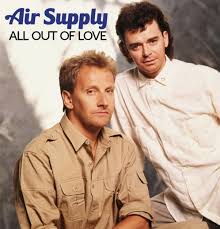
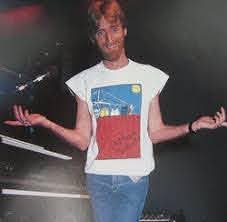
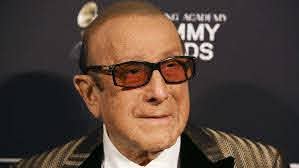
On All Out Of Love guitarist/songwriter Graham Russell’s lead vocal contribution, particularly during the intro, was more obvious on this song and it benefitted from his rich mellow tones when contrasted with Russell Hitchcock’s more plaintive tenor. The orchestral arrangement by Frank Esler-Smith, particularly the strings and acoustic guitar fills, were pop perfect, and he would continue to contribute to the success of Air Supply’s pocket symphonies on future albums. The song covered familiar territory for the group about a man who has cheated but now seeks forgiveness and a reconciliation.
With pop music generally used as a vehicle for escape and fantasy, the sentiment that to love is to be human and to be human is to hurt, was a sentiment that characterised most of the hits of Air Supply; this could seemingly be unpopular, but it won a place for the duo on the charts, as soft rock truth-tellers. Trading the lead vocals on this song, and sharing their vocal skills, amidst chords that plucked at the heartstrings, well-orchestrated soaring strings, crystalline guitar riffs, and resonant drum fills, they made vulnerability a strength. “It’s such a crazy old town/It can drag you down/ ‘Til you run out of dreams/ So you party all night to the music and lights/ But you don’t know what happiness means/ I was dancing in the dark with strangers/ No love around me/ When suddenly you found me, oh, oh, oh…”These unabashed displays of emotion, often tempted some to label Air Supply as a “guilty pleasure”, but why should you feel bad about the one that you love, Russell and Hitchcock were true romantics, and their sincerity shone through in their songs.
Russell’s original lyric chorus was “I’m all out of love/ I want to arrest you” which Arista Chief Clive Davis rejected as he believed that Americans would conclude that someone was about to be apprehended, so he changed it to “I’m all out of love/ I’m so lost without you”, canny Clive also got a writing credit for his contribution, the brutal royalties-sharing euphemism, “ a third for a word” was evident here. The song is also quite famous for lead singer Russell Hitchcock holding the final note for 16.2 seconds, a record for a male singer, until 1983 when Sheriff lead vocalist Freddy Curci held the final note for When I’m With You, for a breathtaking 19.4 seconds.

Every Woman in the World was the third single lifted from the Lost in Love album, it was written by “The Dukes”, who were the British songwriting duo of Dominic Bugatti and Frank Musker who had penned Modern Girl for Sheena Easton and could be relied on to deliver deftly-crafted MOR ballads that would resonate with the American market. Below-The “Dukes”.
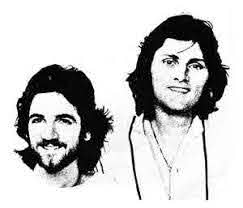
It was a melodic midtempo song filled with lyrical and instrumental hooks, and the orchestral arrangement by Harry Maslin and Barry Fasman ensured that Hitchcock’s vocals, and Russell’s more restrained harmonies, underscored the poignant message of the song, about a man who has found real love, and is committed to a lasting relationship.
The song and Air Supply’s laid-back style and effortless, winning vocal harmonies were a potent combination and once again Air Supply had another international hit on their hands. Every Woman hit the charts in the US at #5, #8 in Aust, #11 in the UK for their only top 40 hit there, and #7 in NZ, to continue the golden run for the band as they continued to produce glossy, melodic and beautifully -produced love ballads like this one, which were radio-friendly, market-savvy, and consistently sold over a million copies. In 1983 their Greatest Hits album would sell over four million copies as their fans faithful allegiance to the band and their music soared throughout the 1980’s.
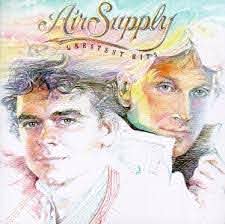
The private lives of both Russell and Hitchcock would become complicated as both seemed to be struggling to find lasting loving relationships, about which they frequently sang, it was a case of art imitating life, love and other bruises indeed. Graham Russell had wed his high school sweetheart Linda in 1967 and they had two children, Simon (1968) and Samantha (1972) but by 1978 they were getting divorced. He subsequently settled into new domestic arrangements in Utah in1986 with his second wife, Jodi Varble, he was 36 years old and she was 21. Below- Graham and Jodi Russell and Laurie and Russell Hitchcock at the G’Day Australia Gala in Los Angeles 2013.
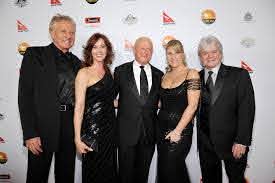
Compiling a timeline of Russell Hitchcock’s marital arrangements over the years has been challenging, there is considerable debate amongst AS fans about to whom and when Russell was married, and which of these unions produced children. There is now evidence that Russell first married Jean, and at 21 years of age Russell fathered a son Jon in April 1970, he subsequently married Dianne in Sydney in the early 1980’s, who was variously employed by Wizard Records and Radio 2MMM FM. Below- Russel Hitchcock with Dianne, Laurie, and Cari
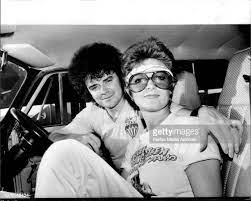
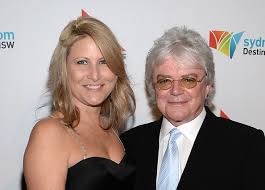
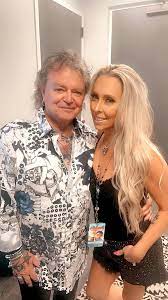
There is consensus that Russell Hitchcock then married air hostess Paula Fulmer in 1986 and this union produced a daughter Sydney Rose, who occasionally performs with her father. There is further speculation that Hitchcock next married Rebecca Fields but this has not been documented. It is generally agreed that Russell then married Laurie Parker in 2000 but this union did not endure and they were also divorced. He married his fourth wife Deanna Bracey in 2017 and the couple set up house in Atlanta, Georgia, but became estranged and ultimately divorced, and by 2022 he had married for a sixth time to Cari. Below- Graham and Russell through the years.
